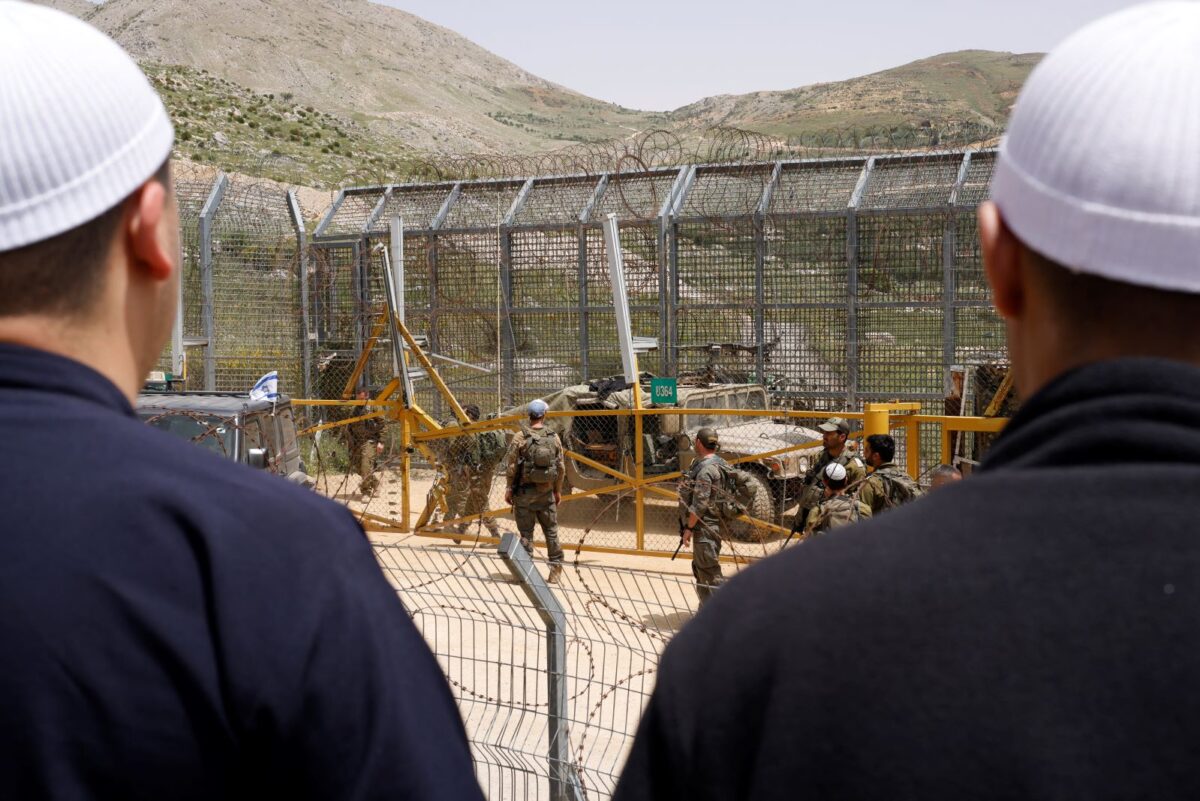
On Druze Identity, Fear, and the Politics of Presence
This past week, we witnessed Druze in the occupied Golan breaking the border fence in an attempt to reach their kin in Syria. It was a moment charged with symbolism of defiance, desperation, and the raw energy of a community that feels under siege, not just physically, but existentially.
And it wasn’t just in the Golan. From Mount Lebanon to every place with a Druze population, from diaspora circles to every digital platform, Druze voices rose: furious, grieving, and desperate to act. The call was not just to stand by the victims, but to be there, to protect, to resist, to reclaim agency in the face of silence and fear.
The events in Ashrafieh and Sahnaya, where Druze civilians were killed in sectarian attacks, have reopened old wounds. For many, the response was instinctive: rally, defend, mobilize. And across social media, one could feel the gravitational pull of fear and with it, the call to arms.
But this is precisely the moment when fear must not dictate our future.
Fear is not new to us
The Druze have never been a people of numbers or power. We are a people of presence. We have survived not by overpowering others, but by adapting, negotiating, and holding firm to a dignity that refuses to disappear. Yet in moments like this when the state is silent, and regional chaos pushes identity into the corner that dignity risks being reshaped into militancy.
Yes,: the calls for armed mobilization across countries are understandable. When your people are being killed and no one comes, your instinct is not to wait, but to act. But that very logic — the one that sanctifies the rifle in the name of protection — is the same logic that has torn the region apart.
It is the logic we’ve spent decades criticizing. We rejected Hezbollah’s claim that arms protect dignity because we saw how that path erodes the very notion of the shared state. The same principle must apply when it is our community that is threatened. The pain is real but the response must be wiser than the forces that caused the pain.
The real danger: mimicking what we oppose
Today, the real danger is not just in the attacks. It’s in what they might provoke us to become. If our answer to marginalization is armed isolation, then we are not protecting ourselves, rather we are repeating the tragic pattern of our region: trauma, arms, fragmentation.
We must not become a militia. We must become a model.
What we need is not another armed group claiming to protect its people. What we need is a political and institutional model — a state — that protects its citizens not based on sect, but on citizenship. That model is not utopian. It exists in functioning democracies, in multicultural societies where rights are not negotiated at gunpoint.
This moment must push us not toward bunkers, but toward building. Toward thinking not of vengeance or victimhood, but of vision.
A call for state responsibility — and community restraint
We call on the Syrian state to break its silence. The killing of civilians, the terrorizing of minority communities, the evictions, all require clear, public, and serious response. There can be no legitimacy for a state that selectively protects.
But we also call on our own. The future of the Druze in Syria, Lebanon, and beyond cannot be secured by reactivity. It must be built by choice, presence, and politics.
We are not a community of retreat. We are a community of resistance but not just resistance to violence. Resistance to being told we must become what we’re not in order to survive. Resistance to being boxed into sectarian responses that offer short-term pride and long-term isolation.
Between the wall and the future
When the wall in the Golan fell, it felt like an act of reclamation. But the real wall we must break is the one in our minds, the one that says we must fight alone, live alone, die alone.
We must break the wall that traps us in historical repetition. We must choose — deliberately — to stop writing our stories with fear and start writing them with ideas.
The Druze have always stood at the margins of power. But we are not marginal. Not if we build. Not if we choose to be authors of a new chapter not just for our community, but for a region so desperately in need of a new political imagination.
Conflict is no longer destiny. It is a choice. And so is the future.
Ramzi Abou Ismail is a Political Psychologist and Senior Research Fellow at the Institute for Social Justice and Conflict Resolution at the Lebanese American University.
The views in this story reflect those of the author alone and do not necessarily reflect the beliefs of NOW








